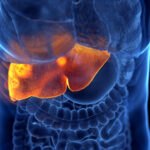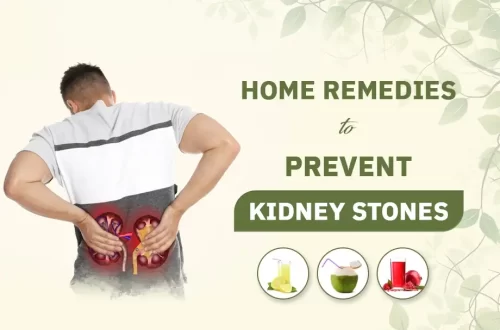Facts on Cure for Cirrhosis
Regarding cure for cirrhosis, we have to begin with this question: How do doctors help people with cirrhosis?
Doctors can’t cure cirrhosis completely or make the liver damage go away completely. But they can do things to help. They focus on treating what caused the cirrhosis in the first place. This might slow down how fast the liver gets worse.
When someone has cirrhosis, doctors cannot fully heal the liver or completely remove the damage. However, they can take steps to alleviate symptoms and slow down the progression of the disease.
They concentrate on addressing the factors that led to cirrhosis initially, which may help in slowing down the deterioration of the liver over time.
How do they treat the causes of cirrhosis?
Doctors usually suggest changes in how you live and might give you medicine to stop more damage to the liver. They might say you should stop doing things like drinking alcohol or taking certain medicines.
Those things can make cirrhosis worse. If you’re overweight, they might suggest trying to lose weight.
In order to tackle the root causes of cirrhosis, doctors often recommend lifestyle adjustments and may prescribe medications to prevent further harm to the liver. They might advise against behaviors such as alcohol consumption or the use of specific medications known to exacerbate cirrhosis.
These actions are vital as they can worsen the condition. Additionally, for individuals who are overweight, doctors might suggest efforts to shed excess pounds.
What about if it’s from drinking too much alcohol?
If your liver got damaged from drinking too much alcohol, doctors will tell you to stop drinking completely. They might also help you find treatment to stop drinking.
For those whose liver damage stems from excessive alcohol consumption, doctors typically emphasize complete abstinence from alcohol. Additionally, they may assist individuals in finding appropriate treatment programs to address alcohol dependency and support them in maintaining sobriety.
Managing Nonalcoholic Fatty Liver Disease (NAFLD)
Nonalcoholic fatty liver disease (NAFLD) is a condition where excess fat builds up in your liver. While there’s no single cure, doctors can recommend strategies to manage NAFLD and improve your liver health.
Weight Management is Key as part of cure for cirrhosis
- Losing weight, especially for those who are overweight or obese, is a cornerstone of NAFLD management. Reducing body fat can help lessen the fat stored in the liver, potentially decreasing inflammation and scarring.
- Healthy Eating: A balanced diet rich in fruits, vegetables, and whole grains provides essential nutrients while limiting unhealthy fats, added sugars, and processed foods. This dietary approach can promote weight loss and support liver function.
- Exercise Regularly: Regular physical activity, even moderate-intensity exercise like brisk walking, can significantly benefit NAFLD. Exercise helps with weight management and improves overall health.
Additional Considerations:
- Medications: In some cases, doctors may recommend medications to manage cholesterol, blood pressure, or diabetes, which can contribute to NAFLD.
- Weight-Loss Surgery: For certain individuals with severe obesity, weight-loss surgery might be an option to achieve significant weight loss and improve NAFLD.
Cure for Cirrhosis (Treatment)
Chronic Hepatitis C: Targeting the Virus for a Cure
Chronic hepatitis C is a long-term infection caused by the hepatitis C virus. Fortunately, advancements in medicine offer a high cure rate.
Doctors use powerful antiviral medications specifically designed to attack the hepatitis C virus. Studies show that these medications can effectively eliminate the virus in over 95% of patients within 8 to 12 weeks, leading to a cure.
YOU MAY LIKE: Take These Grains to Reduce Cholesterol Levels
Chronic Hepatitis B: Controlling the Virus for Liver Protection
Chronic hepatitis B is another form of a long-term viral infection. While there’s no cure available, antiviral medications can significantly manage the condition.
These medications work by suppressing the hepatitis B virus, preventing it from further damaging the liver. This approach helps protect liver health and reduces the risk of complications.
Autoimmune Hepatitis Treatment
Autoimmune hepatitis is a condition where your body’s immune system mistakenly attacks your liver cells. Treatment focuses on calming this overactive immune response and preventing further damage. Here’s how doctors approach it:
- Immunosuppressive Therapy: These medications are the mainstay of treatment. They work by suppressing the immune system’s activity, essentially putting it on hold to prevent further attacks on the liver. Prednisone, a corticosteroid, is often the first line of defense. It effectively reduces inflammation but can have side effects with long-term use.
- Azathioprine: This medication is another common choice, often combined with prednisone to reduce the steroid dosage and potential side effects. It works by dampening the immune system’s activity in a different way than prednisone.
- Tailored Approach: The specific medications and dosages used will depend on the severity of your case and your individual response to treatment. Doctors will closely monitor your progress and adjust the regimen as needed.
Treatment for Blocked Bile Ducts
Diseases like primary biliary cholangitis (PBC) and primary sclerosing cholangitis (PSC) damage or block the bile ducts, tiny tubes that carry bile away from the liver. This can lead to liver problems. Here’s how doctors address these issues:
- Ursodeoxycholic Acid (UDCA): This medication is the cornerstone of treatment for PBC. It helps improve bile flow and may slow disease progression.
- Procedures to Open Bile Ducts: In some cases, minimally invasive procedures like endoscopic retrograde cholangiopancreatography (ERCP) may be used to clear blockages or widen narrowed ducts. This allows bile to flow more freely.
- Surgery: For severe cases or those unresponsive to other treatments, surgery might be an option to remove damaged bile ducts or create a new pathway for bile flow.
Managing Inherited Liver Diseases
Inherited liver diseases encompass a wide range of conditions, each with its own unique characteristics. Treatment strategies (cure for cirrhosis ) will vary depending on the specific disease:
- Gene Therapy: For some inherited liver diseases, advancements in gene therapy offer the potential to correct the underlying genetic defect. This is a rapidly evolving field with ongoing research.
- Replacement Therapy: In some cases, replacing a missing or deficient enzyme can help manage symptoms and improve liver function. Enzyme replacement therapy is an example of this approach.
- Liver Support: Treatment may also focus on supporting overall liver health and preventing complications. This might involve dietary modifications, medications, and addressing other health conditions that can put additional stress on the liver.
Treatment for Medication-Induced Cirrhosis
If certain medications are causing cirrhosis, the primary treatment is to stop taking them as soon as possible.
However, this should only be done under a doctor’s supervision, as some medications require tapering off to avoid withdrawal symptoms. The doctor will then explore alternative medications that are less likely to harm the liver.
Addressing Complications of Cirrhosis
Cirrhosis, a late-stage liver disease, can lead to various complications. Treatment for these complications (cure for cirrhosis ) focuses on managing symptoms and improving quality of life. Here are some examples:
- Fluid Buildup (Ascites): Medications like diuretics can help remove excess fluid from the abdomen.
- Internal Bleeding (Variceal Hemorrhage): Medications can help constrict blood vessels in the esophagus and stomach to reduce the risk of bleeding. In severe cases, endoscopic procedures or surgery might be needed.
- Hepatic Encephalopathy: Medications can help manage this brain dysfunction caused by liver failure.
- Liver Transplant: In some cases, a liver transplant may be the best option for advanced cirrhosis and its complications.
Addressing Portal Hypertension
Portal hypertension refers to abnormally high blood pressure in the portal vein, a major blood vessel carrying blood to the liver. While there’s no direct cure for portal hypertension, doctors can employ various strategies to manage it and address its complications.
Lowering Portal Vein Pressure
- Medications: Specific medications, often beta-blockers, can help lower the pressure within the portal vein, reducing the strain on the circulatory system.
Combating Ascites (Fluid Buildup in the Abdomen):
- Diuretics: These medications act like workhorses, promoting fluid excretion through urination and alleviating abdominal swelling.
- Dietary Sodium Restriction: Limiting sodium intake helps reduce fluid retention within the body, easing ascites.
- Large-Volume Paracentesis: For significant fluid buildup, doctors may use a needle or tube to drain the excess fluid from the abdomen. This procedure can also help analyze the fluid for signs of infection.
- Antibiotics: If an infection is present in the drained fluid, doctors might prescribe antibiotics to combat it and prevent further complications.
Addressing Edema (Swelling in Legs, Ankles, or Feet):
- Diuretics: Similar to ascites management, diuretics play a crucial role in reducing leg swelling by promoting fluid removal via urination.
- Sodium Restriction: Limiting dietary sodium intake remains essential for managing edema as well.
Managing Esophageal or Stomach Varices (Enlarged Veins)
- Medications: Beta-blockers, again, come into play, helping to lower blood pressure within the varices, reducing the risk of enlargement and potential rupture that could lead to life-threatening internal bleeding.
- Endoscopic Procedures: During an upper GI endoscopy, doctors can perform procedures like variceal banding or sclerotherapy to address existing varices and minimize the risk of bleeding.
- Surgical Procedures: In severe cases, surgical interventions might be necessary to control bleeding varices and prevent future complications.
Importance of Early Recognition and Intervention:
Regarding cure for cirrhosis, individuals experiencing symptoms like vomiting blood or black or bloody stools should seek immediate medical attention.
These symptoms can indicate variceal bleeding, a medical emergency requiring prompt intervention to control bleeding and prevent potentially life-threatening complications.
Combating Toxin Build-up in the Brain: Hepatic Encephalopathy
Cirrhosis can lead to hepatic encephalopathy, a condition where toxins accumulate in the brain, causing a range of neurological issues. Here’s how doctors address this complication:
- Medications: Lactulose, a medication that alters gut bacteria to reduce toxin production, is a mainstay of treatment. Other medications might also be used to improve brain function and manage symptoms.
Fighting Infections: A Crucial Aspect of Care
People with cirrhosis are more susceptible to infections due to impaired immune function. Doctors take a proactive approach:
- Antibiotics: Upon diagnosis of a bacterial infection, doctors will promptly prescribe antibiotics to combat the infection and prevent further complications.
Early Detection and Management of Liver Cancer
Cirrhosis significantly increases the risk of developing liver cancer. Early detection is crucial for improving treatment outcomes. Here’s what doctors recommend:
- Regular Screening: Blood tests and imaging studies like ultrasounds are used to check for liver cancer at regular intervals, typically every 6 months.
- Importance of Early Stage Diagnosis: Early detection offers a better chance of successful treatment, potentially even curative measures.
Treatment Options for Liver Cancer
If liver cancer is diagnosed, several treatment approaches are available:
- Surgical Procedures: Techniques like resection or ablation can remove or destroy cancerous tissue.
- Radiation Therapy: Targeted radiation beams can kill cancer cells.
- Chemotherapy: Powerful medications can target and destroy cancer cells throughout the body.
- Liver Transplant: In some cases, replacing the diseased liver with a healthy donor liver may be the most effective option.
Addressing Liver Failure: The Role of Liver Transplant
Liver failure, the end stage of liver disease, signifies the liver’s inability to function properly. The only definitive treatment for this condition is a liver transplant:
- Liver Transplant: A surgical procedure where the diseased liver is replaced with a healthy liver from a deceased or living donor. This is a major surgery with significant considerations, but it offers a chance for renewed life.
Managing Other Complications
Cirrhosis can manifest with various additional complications. Doctors will create a personalized treatment plan based on the specific complication:
- Medications: Existing medications might need adjustments, or new ones might be introduced to manage specific complications.
- Dietary Changes: Dietary modifications may be recommended to support overall health and minimize stress on the liver.
- Physical Activity: Regular physical activity, tailored to individual capabilities, can improve overall well-being.
- Surgery: In some cases, surgery might be necessary to address specific complications of cirrhosis.
Taking Charge: Living Well with Cirrhosis
While cirrhosis is a chronic condition, there are steps you can take to manage it effectively and potentially slow its progression:
Abstaining from Harmful Substances:
- Say No to Alcohol and Illegal Drugs: Alcohol and illegal drugs inflict further damage on your already compromised liver. Eliminate them completely from your lifestyle.
Medication Management:
- Consult Before Consuming Anything: Discuss all medications, including:
- Prescription medications: Talk openly with your doctor to ensure any prescribed drugs are safe for your liver.
- Over-the-counter medications: Don’t assume over-the-counter options like pain relievers (NSAIDs, acetaminophen) or sleep aids are harmless. Consult your doctor before taking them.
- Dietary supplements and herbal remedies: While these may seem natural, they can interact with other medications or put strain on your liver. Discuss them with your doctor before use.
- Complementary and alternative medicines: Similar to supplements, these require discussion with your doctor to ensure they are safe for you.
Following Your Doctor’s Guidance:
- Medication Adherence is Key: Take all prescribed medications exactly as directed by your doctor. Skipping doses or altering regimens can be detrimental.
Vaccination is Vital:
- Protect Yourself from Infections: Get vaccinated for hepatitis A, hepatitis B, influenza, pneumonia caused by specific bacteria, and shingles. Cirrhosis weakens your immune system, making you more susceptible to infections. Vaccination helps prevent these illnesses and their potential complications.
Embrace a Healthy Lifestyle:
- Eat a Balanced Diet: Focus on consuming healthy foods and drinks. Choose fruits, vegetables, and whole grains. Limit unhealthy fats, added sugars, and processed foods.
- Food Safety Matters: Avoid raw or undercooked shellfish, fish, and meat to minimize the risk of foodborne illnesses that can be particularly harmful with cirrhosis.
- Weight Management: Strive for a healthy body weight. If overweight or obese, work with your doctor to develop a safe and sustainable weight loss plan.
By following these recommendations and working closely with your doctor, you can empower yourself to manage your cirrhosis and potentially improve your quality of life.
Disclaimer
The information provided here about cure for cirrhosis is for educational purposes only and is not a substitute for professional medical advice. I am not a medical professional. If you have cirrhosis or suspect you may have it, please consult with a licensed physician or healthcare provider to discuss your individual situation and treatment options. Do not make any changes to your diet, medications, or lifestyle without first consulting with your doctor.

A graduate of Computer Science and Information Management Technology. Diploma – Caregiving, Certificates – Dementia and Diabetes Awareness and Management. A researcher, blogger, songwriter, singer and acoustic guitarist. Born in an environment where natural talents such as healing are imparted at our natural birth. This natural talents of healing is the result of our genetic inheritance and the training from family environment.











